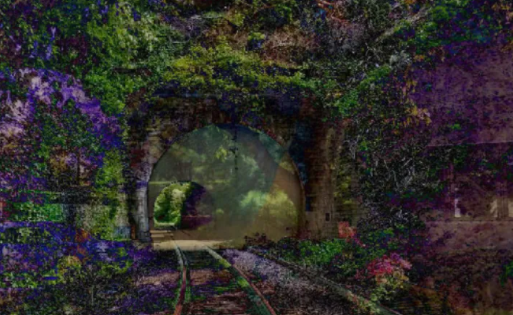US Copyright Office says AI can't copyright its art
US Copyright Office says AI can't copyright its art
The US Copyright Office has denied a request to let AI copyright a work of art. Last week, a three-person board reviewed a 2019 ruling against Steven Thaler, who tried to copyright a photo on behalf of an algorithm he dubbed the Creativity Machine. The board found that Thaler's AI-generated image did not contain an element of "human authorship" -- a required standard for security, it said.
The Creativity Machine's work, seen above, is titled "A Recent Entrance to Paradise." It is part of a series of what Thaler describes as a "simulated near-death experience" in which an algorithm reprocesses the images to create deceptive images and a fictional narrative about the afterlife. Importantly, AI must do so with minimal human intervention, which has proven to be a dealbreaker for the Copyright Office.
The board's decision calls the "connection between the human mind and creative expression" an important element of copyright. As it notes, copyright law does not directly outline rules for non-humans, but courts have taken a dim view of claims that animals or divine beings can take advantage of copyright protections. A 1997 ruling stated that (supposedly) a book of divine revelation, for example, could be preserved if an element of human order and duration was (again, believed). Recently, a court found that a monkey cannot sue for copyright infringement. "The courts have been consistent in finding that non-human expression is ineligible for copyright protection," the board says.
This does not mean that any art with an AI component is ineligible. Thaler emphasized that humans were not meaningfully involved because his goal was to prove that machine-made work could achieve safety, not just to prevent people from violating the picture. (He tried unsuccessfully to establish that AI could patent inventions in the US as well.) The board's argument agrees with his explanation. So if someone tried to copyright the same work by arguing that it was the product of their own creativity performed by a machine, the results could look different. A court may also reach an alternative conclusion on Thaler's deed if it follows his disapproval with a lawsuit.
Still, the Copyright Office is highlighting the importance of human agency in machine-made works. As AI becomes a large part of artists' repertoire, the limits of that conclusion may be tested for years to come.







No comments